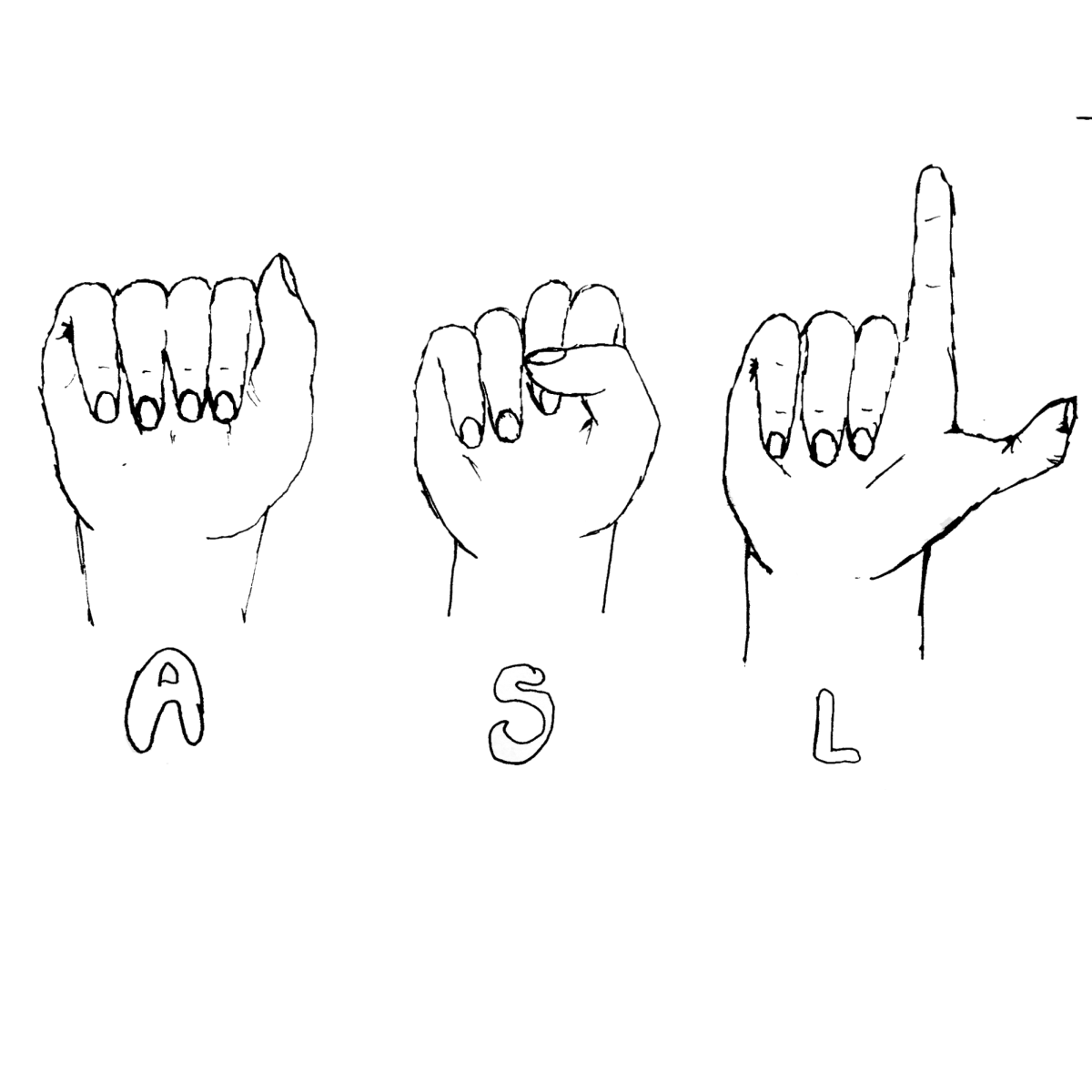If you or someone you know struggles with severe depression or suicidal thoughts, call or text 988 for support from the national Suicide and Crisis Hotline. For counseling and other services, visit the South Carolina Department of Mental Health’s online resources.
Editor’s Note: I was never officially diagnosed with either depression or Bipolar II; these were just the two illnesses that most closely aligned with my symptoms. For the best treatment of any mental health disorder, consultation with a medical professional is strongly recommended. All strategies suggested are based on personal experience and not necessarily by a medical professional.
I know lots of people. Lots of people know me. I’m a peer, a friend, an achiever, a “pleasure to have in class(!).” Some know that I write, that I read, that I have dreams of a simple yet fulfilling life after I graduate. Fewer know what I write or read or dream about. Below the surface, though, I don’t think many know me to my core. Maybe no one at all – not even myself.
After all, I should be predictable, right? I should know the way I feel and why I feel it. But for the past few years, I’ve been going through cycles of decline that I often can’t attribute to anything. They come from out of the blue, then disappear without a trace.
Some days I feel really, really great. I’m over the moon! Things are falling into place: my bank account isn’t drained, my future looks bright, my thoughts are crystal clear, my friends actually feel like friends. It’s the way things really are, or so I think.
Other days, it’s the opposite. Little things seem to pile on top of one another: no sleep. Then, first thing in the morning, I’m overstimulated by too many people in the kitchen. My social anxiety paralyzes me, zips my mouth closed when I come to school. I can’t even talk to my own friends. The little things seem to reach a climax, briefly. My mind starts to race despite my tiredness. I start to lose focus, and from there, things become a blur. The climax dissipates. I don’t care anymore; I just want to go home.
By the time school lets out, I can’t even remember what went on for the past seven hours. All I can think about is getting to sleep that night, after more hours of compulsively scrolling through my phone than I know are good for me. I’m indecisive. I want to buy everything I see online. Then forced, restless sleep. Another day ends.
Of course, we all have our bad days. But every day shouldn’t be exactly the same, should it? Not for weeks on end. Coupled with the roller coaster loops of my emotional highs, I seem to be entirely out of control, powerless to stop the circle.
On one hand, parts of it sound a lot like depression, which I know many people my age suffer from. Around the world, nearly one in seven teenagers suffer from it due to several factors. Social or environmental factors such as bullying, abuse, poverty, genetics, even a lack of sunlight can contribute to its onset.
As far as genetics go, depression isn’t directly inherited, but the children of someone with depression are said to be more at risk for developing it than what’s considered normal, according to Stanford Medicine. For example, my mother had depression when she was a teenager and through parts of her adult life. That – as well as my upbringing and the basic parts of my personality – could very well explain my case, or at least part of it.
Growing up, I wasn’t exactly much of a talker. I had very few friends in early elementary school, and the ones I had weren’t as close as they could be. In all honesty, those closest to me were my books and my imagination. It hurt a little. I got used to it, though.
Middle school was a little better. I had more opportunities than the years before – there were new faces and new chances to prove that I wasn’t always destined to be the quiet, shy girl all of my old classmates from Forest Lake were used to. And I did. By the end of the first semester, I had made loads of friends, friends I knew genuinely cared about me.
But there was still something holding me back from showing them my real self. I was still shy and insecure. I couldn’t think of things to say in conversations. I was awkward, and I felt like a freak because of it. Thus continued my seventh and eighth grades.
Then the beginning of high school hit me like a train. All of my friends from previous years had left for Spring Valley, and I was friendless once again. I found people to talk to, and for a while, they offered consolation. But by then, I had been so used to being alone that I knew I could never open up to them or care for them the way they cared about me.
It was almost a comfort, though, this loneliness. Or rather, the way I had allowed myself to fight against it: instead of reaching out and building the connections I was deprived of all my life, I was turning inward for comfort instead. Imagining scenarios with certain people, people that were far away from me on a psychological level, and thinking that with them, I could finally find satisfaction with myself. Finally, be understood, inside and out.
My mental state from all this isolation obviously wasn’t healthy. But I had done it to myself. Coming to this hit me harder than anything else I’d ever experienced. I crashed at the end of freshman year: it felt like the end. For a while, I thought I didn’t have the willpower to go on.
That was the first of several suicidal episodes that popped up through the next few years. I got better in between, when things got miraculously brighter. Sophomore year brought about brief friendships and a renewed sense of hope. I started feeling better and having fun again. I could start over.
But just as it would get better, it would get worse. Over and over again. I’d feel healthy and hopeful. And then the next hour or day or week, I’d feel all sorts of things. Complete hopelessness to such anger that I would start crying and shaking. Then, numbness, like I was barely present, floating in a dark existence. It seemed to last forever.
It was with these sudden mood swings that I started to think that something was amiss. Well, something had always been amiss with me, as we’ve already established. But I knew this was something deeper than depression.
As the episodes got darker, they started not just affecting my mood, but everything else in my life as well. I cut off the guy I was trying to heal a friendship with because I didn’t have the emotional capacity. I stopped reading as often because I couldn’t focus. I started getting weird physical symptoms, such as excess tiredness and a lost appetite. Small things would break me; I didn’t place in a writing contest I’d entered last fall, and for the past several months it has still effectively stopped me from writing a single chapter of the novel I want to finish one day. I couldn’t write anything worth reading, so what future was there for me? The dream was shattered. Life was over.
It was then I began thinking I had bipolar disorder. I’d heard of it before, not sure where. But when I looked up the symptoms, it was like someone was writing about me: “emotional highs, also known as mania or hypomania, and lows, also known as depression.” The article went on to talk more about mania, and the less intense hypomania. Both of the latter include more energy or irritability, a “distorted sense of well-being,” needing less rest, racing thoughts, and a flurry of others, all of which I’d experienced at some point.
More specifically, I likely have Bipolar II. I’ve never experienced total mania, a sign of Bipolar I. Mania-induced people take unnecessary risks, such as going on reckless spending sprees or abusing substances. They can even become completely disconnected with reality in a hallucinogenic episode of psychosis. Some suffering from Bipolar I also may not suffer from depression as much as those with Bipolar II, if at all.
Bipolar II, on the other hand, features deep depressive cycles that alternate with hypomania. This typically includes fewer extreme “highs;” less reckless behavior, for example, and instead more excitement, energy, and enthusiasm. Depression occurs more frequently and may last longer in these people.
For a while, cycle upon cycle upon cycle, that felt like my entire identity. But what flared up so quickly has now been reduced to almost nothing.
I know. Anticlimactic, right? It likes to act like a flipped coin (hence the name). After months of being assaulted by relentless negativity, I feel completely fine. It may be back, but for the moment it seems to have receded both of its own volition and because of my efforts to dig myself out of it.
I’m thankful it’s gone for the moment, of course, whether I had any part in it or not. I’ve felt a lot more stable compared to previous “highs,” and I’ve learned a lot about myself throughout my recovery, as far as trying to prevent a relapse goes. I hope it stays away for a long, long time.
But I understand that being depressed or even bipolar isn’t a unique situation. The stats show that almost six million people in the US suffer from bipolar, and symptoms of the disease manifest in the late teenage or early adult years – rather, the later years of high school.
And though everyone who has suffered or currently suffers from mental illness may have different strategies to cope with it, I’ve come up with my own solutions and distractions that have been key in keeping another major depressive cycle away (so far).
Getting Off the Phone (Especially at Night)
Turning off your screens at least an hour before you go to sleep can help your sleep health tremendously. While you’re on your phone, your mind is constantly being stimulated and urged to “Go, go go!” by the endless scrolling mechanisms enabled by social media and even some shopping sites (looking at you, Depop). Going to sleep the minute you get off doesn’t allow your brain to slow down and prepare for sleep. In the morning, you end up much more tired than you would have been otherwise, even with nine or ten hours of sleep.
But staying off your phone in general is a habit that we should all try to foster, myself included. Really. You’ll feel so much better if you do anything else: read a book, go for a walk, make a list, bake a cake, watch a movie (on TV). You’ll feel less anxious and bored and more fulfilled, even if it’s hard at first. Scrolling won’t help you out of a bad cycle. Progress through small tasks will.
Connect with People:
Find someone, anyone, to talk to. It can be an old friend or a brand-new one. It could be your mom. It could be a teacher or a therapist. Anyone with ears to listen is fair game.
Can’t think of anything to talk about? Most of the time, I can’t either. So yap about the first thing that comes to mind. Let the other person yap about something in response. Then yap about another topic. Repeat until one or both of you have to leave. Congratulations! You’ve just had a decent conversation. Maybe you’ve made a friend, too.
Finding someone to care about when you don’t even care about yourself is one of the first and most important steps of recovery. Humans are social creatures; we need each other more than we think we do. Besides that, focusing on something other than your pain and problems helps to put that pain and those problems into perspective. In all reality, some things are easily fixable. Which leads me to my next point…
Understanding Yourself:
Knowing what you feel, why you feel and what to do about it is actually a sign of high emotional intelligence. And it’s not something that only a few are born with; anyone can learn to achieve it.
Tangible issues are the easiest to identify. From there, it’s all a matter of knowing cause and effect. What’s making you sad, or angry, or stressed right at this moment? Overstimulation from a messy room? Too many missing assignments? Racing thoughts? Alright. Then comes the immediate solution. Fix the problem to the best of your ability.
It’s going to seem hard in the moment – catching up on schoolwork, cleaning out your closet, purposefully pushing away those toxic thoughts. So break it down into smaller tasks instead: focus on one subject, one section of clothing, one happier thought or distraction at a time. Figure out the rest as you go along. You’ll feel less overwhelmed and get way more done.
The divide-and-conquer approach works on a much larger scale as well. Mental illness can screw up many parts of our lives, and depending on its severity, it could take a lot of rebuilding. But focusing on smaller tasks as part of the bigger picture – developing more ways to handle stress and procrastination, telling ourselves that we’re worth it each and every day, no matter what our diseased brain makes us believe – can accomplish whole miracles if we let it. All we have to do is take the first step.
Experiences, Not Materialism:
It’s probably this realization that got me to where I am now. Materialism, and the general mindset that happiness lies in what we have, isn’t as negative as some people attribute it to be. It’s normal to need and want material goods. Minimalism isn’t for everyone, and certainly not for me: I love shopping. I love making huge wishlists of things I want to buy in the next year: a car, more books, things to decorate my dorm in college.
What we invest our money in can serve as a good indicator of who we are and what we value deepest. If you want more clothes, more makeup, it’s a sign that you care about looking good and expressing yourself. If you want a car, you care about freedom and mobility.
But it’s important not to let this mindset take over completely. It’s not good for your bank account, and it’s certainly not good for getting out of a mental funk. Putting all of your time and energy into physical things gives you none for the non-physical.
We – myself included – often think that once we acquire that certain something, a car or new wardrobe or whatever it may be, everything in our lives will be evened out like on an ironing board. Our insecurities will go away. We’ll look better, we’ll feel better, we’ll be more stable having that object. It’ll feel like reaching a goal.
But realistically, that won’t ever happen. Not for long, at least. We get bored and discontent after a while. We’ll move on to wanting something else. We’re never going to stop after just one goal or need is accomplished. Humans are used to going through life progressively, not coming to an end when so much is yet to be reached.
While it’s fun to buy things, we have to acknowledge that life isn’t going to get better with stuff. I know, it sounds like the old cliche, “Money doesn’t buy happiness.” I agree – that it’s really, really lame. And personally, I think it’s wrong: it does buy happiness, if you invest in the right things. But if we can’t buy tangible happiness, what can we buy?
The answer lies in experience. Physical, mental, emotional. Buy tickets to a movie or to Carowinds. Have fun with your friends, or if you’re anything like me, by yourself. Take some time at home to pursue a hobby, even listening to music. Focus on what’s in front of you, how happy you feel in the moment, instead of how happy you might be later on.
The Key to Happiness:
Take everything I recommend with a grain of salt, though. Everything has limitations. Sleep is hard to come by for a high school student, phone or not. After a long and tiring day, we might need a break to just escape from ourselves into an online rabbit hole. Our friends and family won’t be available every day. Our emotions may be too muddled for us to decipher, and we may not be able to immediately find a cure. Sometimes, that’s okay. That’s life.
But what lies at the heart of recovery is productivity. If we don’t do with this life what we were meant to do with it – exploring, creating, bonding, making memories – we will fail to see the point of it. While we may not have directly caused the onset of our mental illness, a common thought we’ve all probably mulled over is, What’s the point? Of going on, of staying like this?
Give your life a point. Even if it’s a seemingly meaningless point, to just keep going and see what plays out, it’s still a point. Most of what life does to us is out of our control anyway. What matters is to keep going in spite of it.
Keep going. Just keep going. That’s what I did, despite it all. That’s what you can do, too. An object in motion stays in motion: if we concentrate on getting better instead of staying bad, getting therapy instead of staying sad, connecting instead of isolating, we’re going to remain that way. Ultimately, we’re going to find that it’s worth it.










